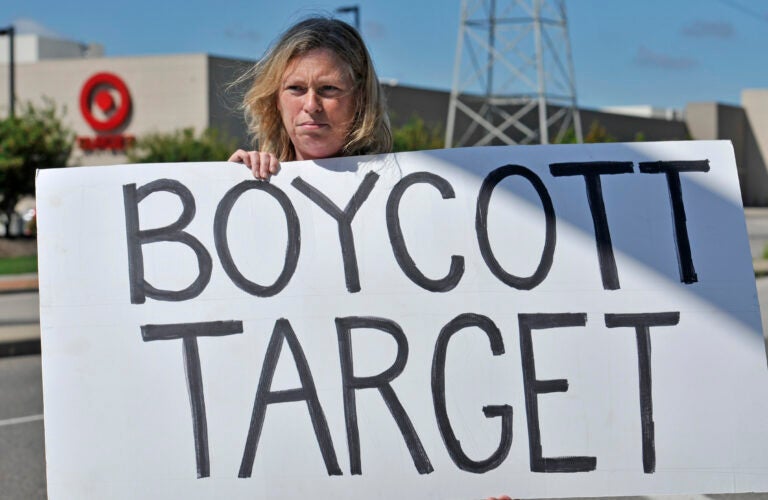Do consumer boycotts work?
Americus Reed II and Jordyn Holman discuss the political economic blackout protesting Target, Amazon, Walmart and other major retailers for DEI policy reversals nationwide.
Listen 51:55
Laura Hedlund, 48 of Eagan, protests in front of a Target store. (AP Photo/Craig Lassig)
Shoppers protesting the reversal of DEI policies at companies like Target, Amazon and Walmart planned a nationwide economic blackout last week, avoiding those retailers and opting to shop small. But the 24-hour boycott had little impact, making no clear dent in the retailers’ bottom lines. Amazon even saw a slight increase in web traffic that day.
The convenience, immediate delivery and often cheaper goods that big box stores offer are at the center of American consumerism. Massive retailers have built the trust, loyalty and dependency of millions of customers, making it challenging for people to rethink — and actually change — their shopping habits.
So is the idea that we can “vote with our dollars” outdated and quaint? On this episode of Studio 2, we’ll talk about the effectiveness of consumer boycotts in today’s economy.
Guests:
Americus Reed – Professor of Marketing at The Wharton School
Jordyn Holman – business reporter covering the retail industry and consumerism for The New York Times
WHYY is your source for fact-based, in-depth journalism and information. As a nonprofit organization, we rely on financial support from readers like you. Please give today.






